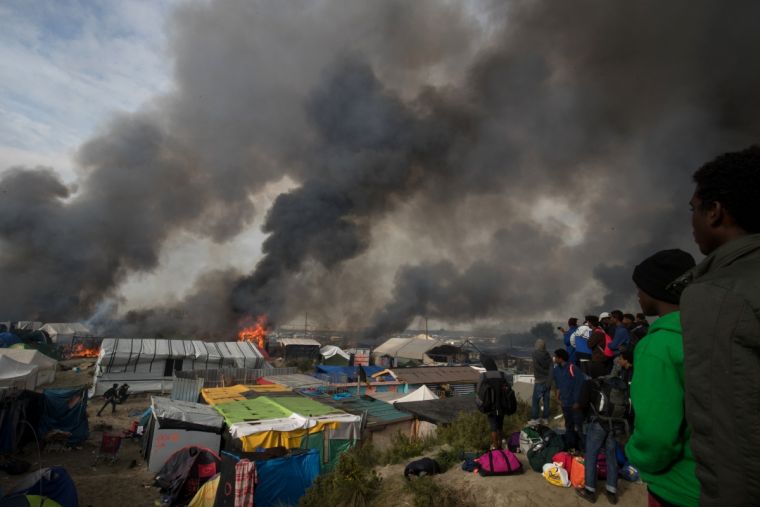Ministers U-Turn On Refugees Challenged In High Court
The government's u-turn on taking unaccompanied child refugees is to be challenged at the High Court.
Campaigners say ministers have not worked hard enough with local authorities to find places for the lone children.

In a low key announcement on Wednesday the government said the scheme aiming to resettle some of the estimated 90,000 vulnerable child refugees would stop at the end of March.
Just 350 children will have been welcomed under the Dubs' programme, rather than the 3,000 discusses in the debate.
Immigration minister Robert Goodwill said a specific figure had never been written into legislation and it had always depended on how many local authority places were available.
But the legal challenge on Friday, launched by the charity Help Refugees, will argue officials have not worked hard enough with local authorities to find sufficient places.
In a statement to the House of Commons on Thursday, the home secretary Amber Rudd backed ending the Dubs arrangement saying it acted as a 'pull' for traffickers and children.
'I am clear that when working with my French counterparts they do not want us to indefinitely continue to accept children under the Dubs amendment because they specify, and I agree with them, that it acts as a draw.
'It acts as a pull. It encourages the people traffickers.'
The Archbishop of Canterbury joined other leading Church of England figures on Wednesday calling on the government to reverse its decision, saying he was 'shocked and saddened' by the move.
'Our country has a great history of welcoming those in need, particularly the most vulnerable, such as unaccompanied children,' he said, adding the total of 350 'does not meet the spirit of the commitment' given last year.
'To end the scheme now, when such a small proportion have actually entered the country, is regrettable,' Welby said. 'Local authorities, who are bearing the costs of the resettlement, must be given the resources and time needed to meet our original commitment.'
Later church leaders from the baptists, methodists, quakers, reformed and presybterian movements wrote a joint letter to Amber Rudd outlining their dismay at the announcement and calling on the government to reconsider.
'The UK can be proud of its record in welcoming refugee children, which now extends back for over half a century," the five leaders wrote. 'We believe that this should continue to be the case and would urge the abandonment of any policy that gives any impression to the contrary.'
They added restricting places on the basis of local authorities was 'devoid of ambition and lacks creativity'.
Signed by leaders of the Baptist Union of Great Britain, the Church of Scotland, Quakers in Britain, the United Reformed Church and the Methodist Church the letter said: 'We would encourage an approach to refugee re-settlement that actively includes and engages those community groups and agencies, who offer the potential of raising our existing capacity.'











